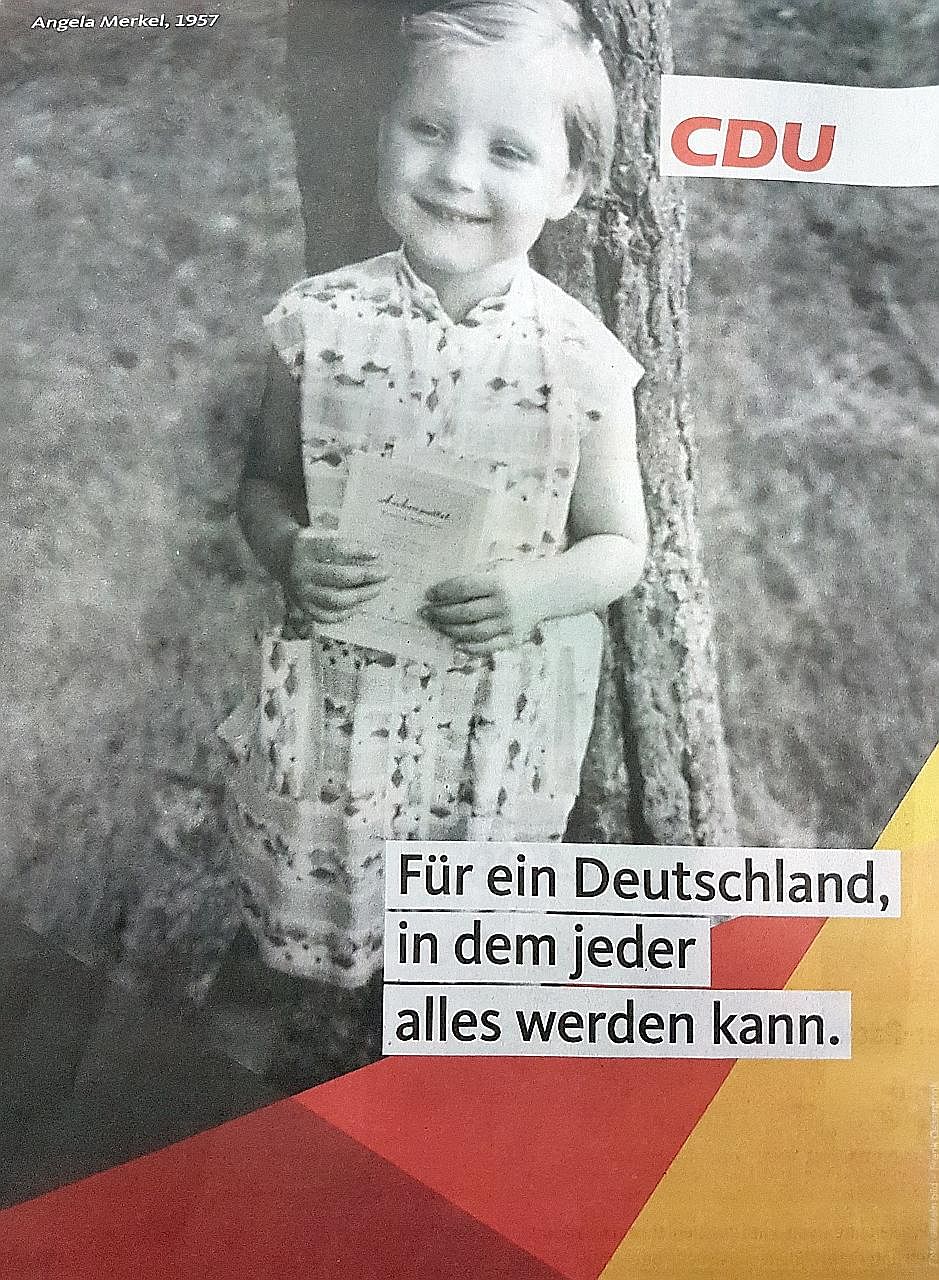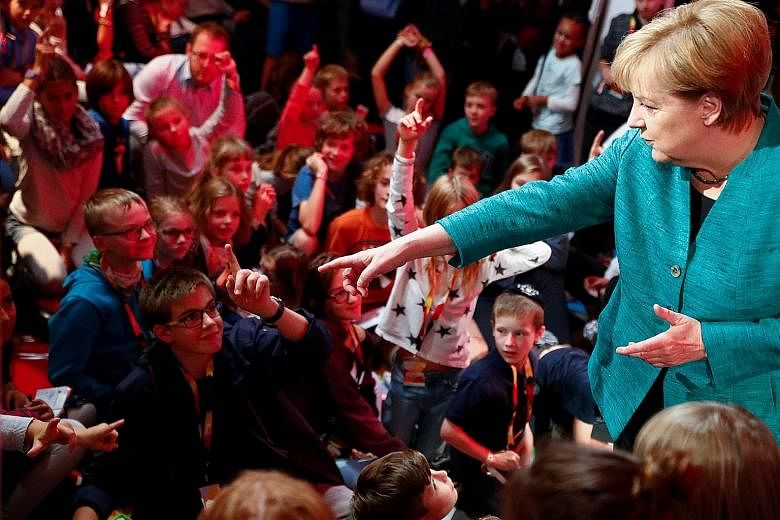Dr Angela Merkel may have given hundreds, if not thousands, of press conferences during her 12 years as Chancellor of Germany, but never had Europe's most powerful woman encountered questions quite like these.
They ranged from "What is your favourite food?" to "when did you get your first wobbly tooth?" to "what would you like to be if you could be someone else and why?"
And they were asked by children, many of them under 12 and, thus, having never known any other chancellor.
Dr Merkel fielded 57 questions at the unique press conference held exactly a week before Germans head to the polls on Sunday, and while they were posed by Germans under 18, and thus too young to vote, it underlined how her Christian Democratic Union (CDU) is looking to the nation's upcoming generation to ensure its own future and that of Germany itself.
After three terms in office, Dr Merkel had said her current campaign to secure four more years would be the toughest. The latest opinion polls give the CDU and Bavarian allies, known together as the CSU, a daunting 36 per cent share of the vote over the second-placed Social Democratic Party (SPD) at 23 per cent. But her rallies across Germany have been marred by tomato-throwing, booing and whistling protesters, many carrying posters of the Islamophobic and anti-immigration Alternative for Germany (AfD) party.
The AfD has capitalised on concerns among some Germans over the arrival of a million asylum seekers since 2015. Although the migration crisis has largely eased, the AfD has gained a footing to the right of Dr Merkel's conservative alliance.
Beyond railing against migrants, it appeared to be mopping up the support of unsatisfied voters. Mr Stefan Klettke, 44, who works in a Berlin pharmacy, said he was casting a protest vote for the AfD this year.
"The country is at a standstill. There is no real opposition," he said. "Everything will continue as it is. I view voting as a duty, and this time, I'm going to the polling station to take the vote away from the CDU and the SPD."
Current polls suggest the AfD could garner between 10 and 12 per cent of the vote, potentially becoming the third-largest, and biggest, opposition force in the Lower House, depending on what coalition ends up being formed. In Germany's complicated consensus politics, the jostling for third place by the Greens, the liberal Free Democrats as well as the far-left Die Linke party could determine the shape of the next government as Dr Merkel is unlikely to get the outright majority in Sunday's vote needed to govern alone. As each smaller party is polling between 8 and 10 per cent, the margin of error of two percentage points is wide enough to make the election a cliffhanger until the last votes are counted.
Thus, while the CDU is likely to dominate German politics for at least four more years, it is not resting on its laurels.

Dr Merkel, 63, has worked to reach younger voters in a bid to broaden her party's support base. While the CDU won in every age group in the last election in 2013, results showed that its greatest support was among voters even older than she is - more than 43 per cent of those over age 70 favoured her party. That means that there is massive potential to grow support among the voters of the future.
To this end, the Chancellor staged the press conference and, interestingly, it may have given greater personal insights to the famously reserved leader than the many that came before. The world found out that her favourite food is spaghetti bolognese, she had a tooth coming loose "just before I started going to school", and she would have liked to be an "astronaut to be able to fly over the Earth once".

Focus magazine was impressed. "None of the mini-journalists will get to vote this Sunday. But party strategists have calculated that someone who is able to handle kids scores points with voters," it said. "This meeting a week before the big vote decision is no relaxed folklore, but a kind of Merkel test."
Business weekly Handelsblatt also noted that "Merkel knows that the children-parent event one week before the vote is a welcome opportunity to present the softer side of her as Chancellor".
Last month, she opened the massive video-gaming fair Gamescom and was interviewed live online by four YouTubers.
Dr Merkel is well aware that every vote counts, having warned that the vote is far from decided, and told her constituents in a weekend rally that she and her CDU "have no votes to give away".
The veteran politician, who revealed to the child journalists that she enjoys planting potatoes, said the vegetables will remain underground until voting day.
"Then I'll harvest them."

